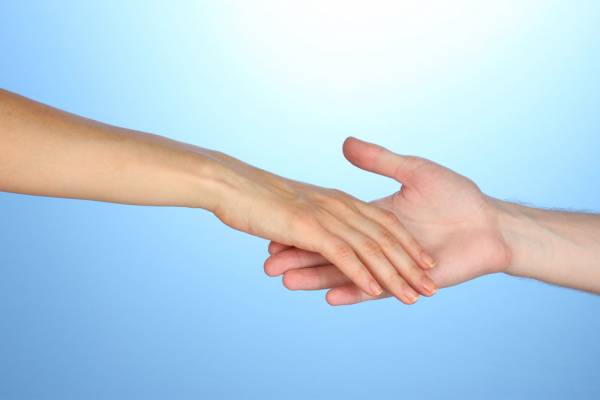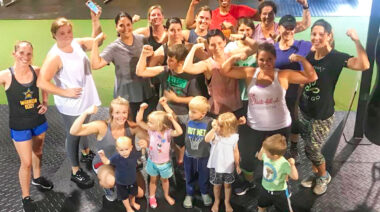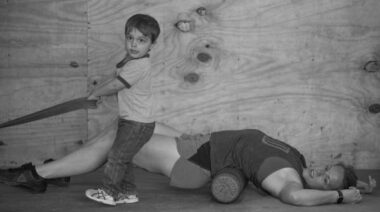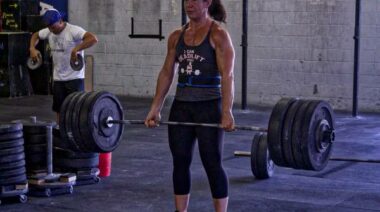The other day, I was trying to tie a piece of furniture to the top of my car. It was a two-person job, because I was threading twine through the open windows. I had to shove the twine far enough into the open window so I could run around to the other side of the car, reach in to pull it taut on that side, and then thread it over the top of the car and the piece of furniture. Lather, rinse, and repeat, until all was tightly secured.
While I was slowly getting the job done by myself, sometimes half-climbing through the window to reach the twine, a friendly-seeming man came up to me to ask if I needed help. Well, as my description should indicate, I did. But interestingly, my immediate, knee-jerk response was, “No thanks, I’m fine.” (Of course, this was after a particularly challenging half-climb into the car window to reach the twine from the other side.) He asked if I was sure, and I repeated that I was fine, but thanks anyway. The nice man shrugged and walked off. As I was driving away, I realized, “Wow, I do not like to accept help.”
And I started thinking about how that has played itself out in my life, particularly what it means for me athletically. It’s a problem, for multiple reasons, and I’ve decided it’s something I want to work on. Here’s how I determined not being open to help affects me and others negatively:
It’s selfish.
I remember times after a CrossFit workout when teammates would make a move to help me put away my equipment – bars, bumper plates, etc. – and I’d say, “Oh, no thanks, I’ve got it.” All they were doing is trying to be good teammates. In retrospect, I realize my behavior was selfish. I know how much pleasure I get out of helping others, so by refusing to allow others to help me, I’m robbing them of the opportunity to feel good about themselves.
It shuts down development of connection/community.
In the improv classes I took many years ago, I learned the concept of “yes-and.” “Yes-and” means you build on what’s given to you. For instance, if your improv partner says, “You are the Queen of Sheba!” then you say, “Yes, I am, and you are the King of Pain!” or some such. You would never say, “No, I’m not the Queen of Sheba. I’m the Prince of Darkness!” Because doing so stops the collaboration in its tracks. So, even if you had your heart set on being the Prince of Darkness, you “yes-and” the Queen of Sheba and see where it takes your partnership. To use an athletic example, if I were to refuse a spot from a partner while bench pressing (“No thanks; I got this”), not only would I be putting myself in potential danger, but I would also miss out on the opportunity to make a connection with someone.
It prevents serendipitous learning opportunities.
 Imagine I had accepted the help of the friendly stranger. He might have known how to tie the ultimate Gordian knot, and been willing to teach it to me. In addition to allowing him to feel good about helping a stranger and potentially make a meaningful connection, I might have had the opportunity to learn something I didn’t know before. If I were to accept the help of my teammates in putting my equipment away, perhaps I’d observe something different or more efficient in the way she carried multiple pieces of apparatus, for instance. Who knows what I might pick up by being open to help from another person?
Imagine I had accepted the help of the friendly stranger. He might have known how to tie the ultimate Gordian knot, and been willing to teach it to me. In addition to allowing him to feel good about helping a stranger and potentially make a meaningful connection, I might have had the opportunity to learn something I didn’t know before. If I were to accept the help of my teammates in putting my equipment away, perhaps I’d observe something different or more efficient in the way she carried multiple pieces of apparatus, for instance. Who knows what I might pick up by being open to help from another person?
High on my list of new year’s resolutions, then, is to curb my knee-jerk reaction to say, “Oh, no thank you!” when someone offers me help. Instead, I’m going to take a breath and choose to say, “I’d love some help. Thank you!”
Are you like me? Do you refuse help as a matter of habit? What might you gain if you change your perspective on accepting help? Post observations to comments.
Photos courtesy of Shutterstock.






